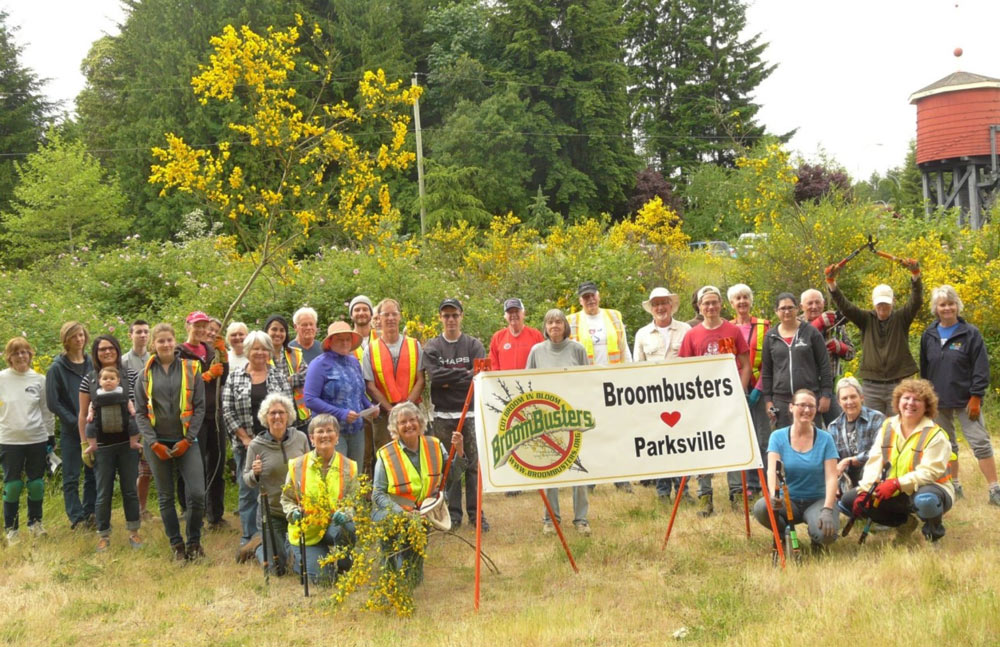Who you gonna call? Broombusters! Volunteers take on invasive Scotch broom
Excerpts:
Can you tell us a bit about yourself and how Broombusters got started and has grown?
I’m an organic blueberry farmer. In 2006, I noticed Scotch broom spreading in the fields of farms next door, as well as up and down the road. Like many people, I asked, “Why aren’t THEY doing anything about this?” I asked this question of the Town of Qualicum Beach and an area manager of the Ministry of Transportation and Infrastructure. The answer was always, “We don’t have the manpower.” My next question was, “If we cut it, will you get rid of it?” It turned out to be the perfect question, because in both cases, the answer was yes!
While cutting some broom in Parksville, I also chanced into meeting a long-time railway man who told me that if you cut the broom when it’s blooming, it will die. Sixteen years later we have witnessed it again and again: in most cases, if broom is cut properly at ground level when in bloom, that plant dies, and the remaining ground cover keeps new seeds from sprouting…
Scotch broom is a serious bully. It spreads like wildfire and burns like wildfire. Wildlife can’t eat it, and it smothers our more delicate native plants. It’s an alien invasive plant, so hardy that it can stop forests from regrowing. So, we have a choice – “forests” of Scotch broom covering our wildlands, islands and mountain sides – or native forests. It only takes a few seeds after an area is cleared of forests for Scotch broom to take over…
Our contribution is small on the global scale. But when neighbors join together to help neighbors, then our contributions are huge! We make new friends, we recognize our collective power, we feel inspired by the passions of others. And stopping the spread of Scotch broom? That at least is something we can do.

